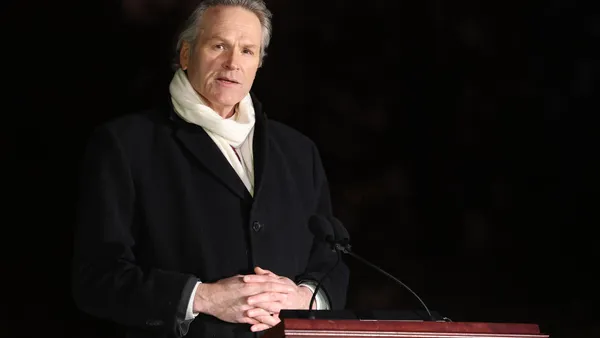Dive Brief:
- The shortage of qualified special educators and its impact on students with disabilities will be the focus of a Nov. 15 U.S. Commission on Civil Rights briefing in Washington, D.C., the commission has announced.
- The briefing will feature groups of yet-to-be-named panelists who will testify in front of the eight-member commission. The commission will take the testimonies into consideration as it develops its Annual Statutory Enforcement Report to be completed in 2025.
- Special education teacher shortages predated the COVID-19 pandemic, but the 2020 public health crisis exacerbated the struggle to hire staff qualified to meet students' individual needs. With a growing population of students with disabilities and a lack of qualified educators, many are concerned about schools' capacity to meet students' guaranteed civil rights under special education law.
Dive Insight:
The USCCR is an independent, bipartisan federal agency that, among other tasks, reviews federal laws and policies with respect to discrimination. The commission's findings and recommendations are shared with the president and Congress.
Students with disabilities who qualify for individual services under the Individuals with Disabilities Education Act are guaranteed a free, appropriate public education, along with certain civil rights protections.
"Education is fundamental for every child and it's our duty to ensure that students with disabilities are not only included but empowered within our educational system," said Commissioner Stephen Gilchrist, in a statement about the upcoming briefing. "We must ensure that the resources, support, and understanding they deserve are provided to ensure them and their parents the most favorable outcomes."
About 70% of surveyed schools reported special education teacher vacancies in the 2023-24 school year, according to the National Center for Education Statistics. Retention is also challenging. About half of special education teachers leave the profession within the first five years of teaching, according to the Council for Exceptional Children and the Council of Administrators of Special Education, two professional advocacy groups.
At the same time, the population of students with disabilities served under IDEA is increasing. About 7.5 million students were identified with disabilities in 2022-23, or about 15% of the pre-K-12 student population, according to NCES. CEC and CASE predict the number of students with disabilities will grow to 7.94 million during this school year.
It's not only a lack of teaching staff that have educators, families and disability rights advocates concerned. According to a U.S. Government Accountability Office report released in July, only 20% of public school students with disabilities attended a school having a social worker, school psychologist, school nurse and counselor. GAO recommended that the U.S. Department of Education collect school and district-level staffing data to determine if any disparities exist.
The Nov. 15 briefing will feature around 20 panelists, including government officials, state and local superintendents, current and past educators, researchers, impacted persons, and experts, who will speak about civil rights and K-12 education policies.
The briefing, which will begin at 10 a.m. ET, is open to the public and can also be viewed on the USCCR YouTube page. In addition, the commission is collecting public comments at [email protected] through Dec. 16.













